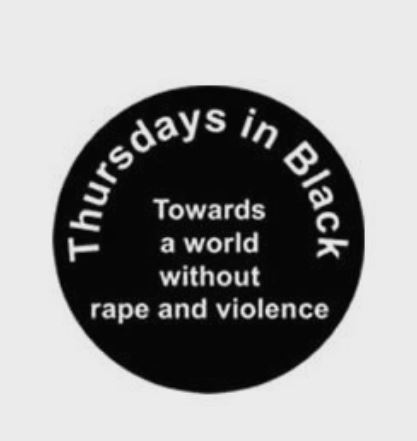#THURSDAYSINBLACK
Church Women United Supports EW at the UN.
Let us join together and pledge our support for Thursday’s In Black!
Dear friends, colleagues and ministry partners,
Sexual and gender-based violence has been on the rise especially during the time of COVID19, as the Ecumenical Women at the United Nations coalition, we invite you to join us in this global campaign and in making the Thursdays In Black Pledge. #ThursdaysInBlack
• Join us in supporting the Thursdays in Black campaign by making the pledge. #ThursdaysinBlack
• Let us work towards a world without sexual and gender-based violence. Make the #ThursdaysinBlack pledge today.
• Sexual and gender-based violence has risen due to the COVID-19. Join us in working to end rape and violence. #ThursdaysinBlack
• Watch this video: https://www.dropbox.com/s/nrhvodspvzrc14p/EW%20Thursdays%20in%20Black%20with%20Intro.mp4?dl=0
You can also write your own text, but please use the hashtag #ThursdaysinBlack somewhere in your post. If you have difficulties downloading or getting access to the videos, please email choater@ucc.org.
God continues to order our steps. May we continue to journey together in the work of ending all forms of sexual and gender-based violence in our life-time. Let’s GO!!!
Ecumenical Women at the United Nations
Leadership Team
UNITED NATIONS GOAL OF THE MONTH
Responsible Consumption and Production – #12
vlj – CWU/UN Representative – Department of Global Communications
Did you know that every year about one third of all food produced – equivalent to 1.3 billion tons – is wasted, yet food security continues to be a growing global concern, affecting millions of people. Or that the world’s freshwater supply such as rivers and lakes are polluted at a much faster rate than nature can recycle and purify?
COVID-19 lockdowns may have led to a dramatic 5 per cent drop in greenhouse gas emissions but not all measures to contain the pandemic have had a positive impact on the environment, warns the UN Conference on Trade and Development. Global sales of disposable face masks have sky-rocketed, and many more people have turned to online shopping due to social distancing.
WHAT DOES THIS MEAN?
Plastic waste created by over-packaged products and take-out meals that are delivered daily to homes are now clogging our landfills and floating in our seas. According to the UN Environment Program, the costs are staggering – the negative spillover effects from plastic waste on fisheries, tourism and maritime transport, for example, can cost up to an estimated $40 billion each year.
In August, we look at the importance of Responsible Consumption and Production as our guide to a less wasteful and more sustainable future.
The fight against plastic pollution is being affected by the COVID-19 pandemic, as the use of disposable masks, gloves and other protective equipment soars.
Plastic waste has long been a major concern, but the UN – and its partners – insist that if effective measures are put into place, the amount of plastics dumped every year into the oceans and landfill can be drastically reduced, or even eliminated.

